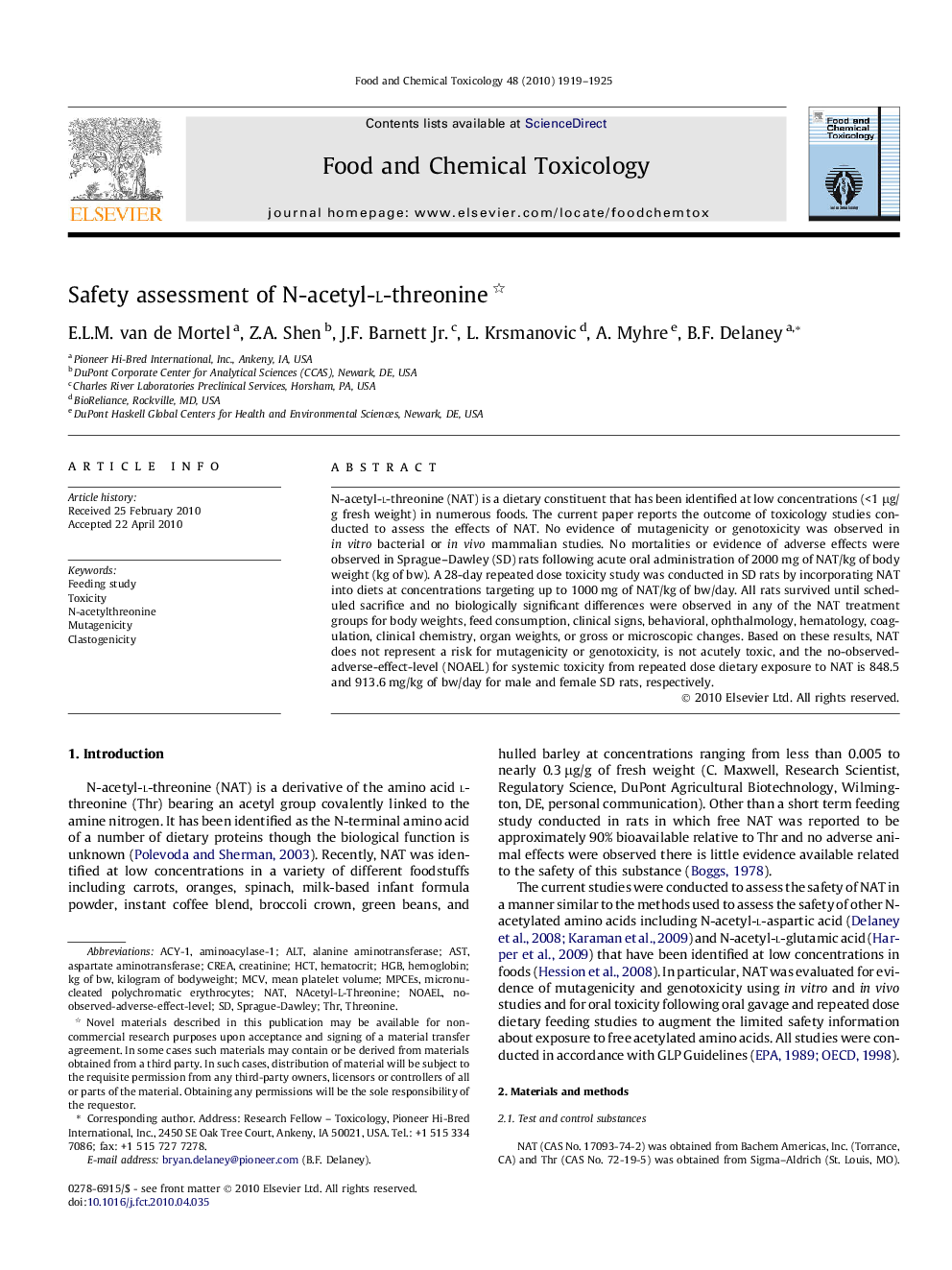| Article ID | Journal | Published Year | Pages | File Type |
|---|---|---|---|---|
| 2585748 | Food and Chemical Toxicology | 2010 | 7 Pages |
N-acetyl-l-threonine (NAT) is a dietary constituent that has been identified at low concentrations (<1 μg/g fresh weight) in numerous foods. The current paper reports the outcome of toxicology studies conducted to assess the effects of NAT. No evidence of mutagenicity or genotoxicity was observed in in vitro bacterial or in vivo mammalian studies. No mortalities or evidence of adverse effects were observed in Sprague–Dawley (SD) rats following acute oral administration of 2000 mg of NAT/kg of body weight (kg of bw). A 28-day repeated dose toxicity study was conducted in SD rats by incorporating NAT into diets at concentrations targeting up to 1000 mg of NAT/kg of bw/day. All rats survived until scheduled sacrifice and no biologically significant differences were observed in any of the NAT treatment groups for body weights, feed consumption, clinical signs, behavioral, ophthalmology, hematology, coagulation, clinical chemistry, organ weights, or gross or microscopic changes. Based on these results, NAT does not represent a risk for mutagenicity or genotoxicity, is not acutely toxic, and the no-observed-adverse-effect-level (NOAEL) for systemic toxicity from repeated dose dietary exposure to NAT is 848.5 and 913.6 mg/kg of bw/day for male and female SD rats, respectively.
